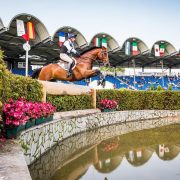No Guts, No Glory: How to Be Fearless like Boyd Martin
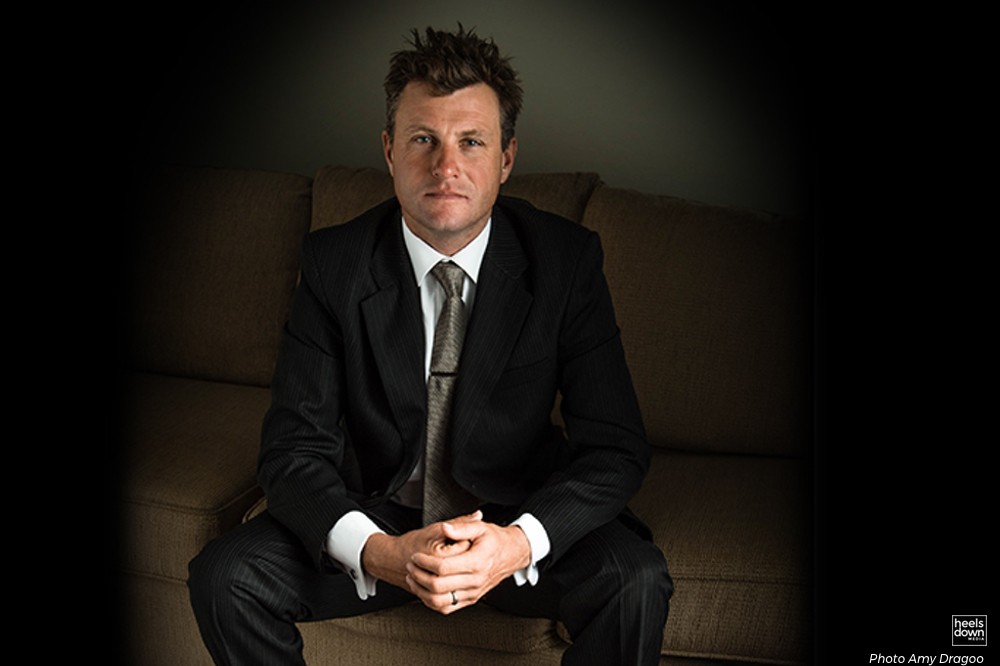
When Boyd Martin recalls competing in his first horse trial as an 11-year-old, he still laughs about it.
He fell off three times during the cross-country phase of that event.
“It doesn’t get much worse than that,” said Boyd, 41, who is currently ranked sixth in the world in the sport of eventing by the FEI. “But I still had a good time.”
Boyd is as fearless as they come. As a five-star rider and Olympian, he’s tackled some of the toughest cross-country courses in the world.
Boyd picked up his entire life and business and moved away from his home in Australia in 2007 to start over in the United States and pursue his dreams of competing internationally. He weathered the unexpected deaths of family members the same year his most well-known horse, Neville Bardos, survived a horrific barn fire, only to go on and finish 7th at the Burghley CCI4* that year.
“Horses were my greatest distraction,” Boyd said. “Competing at events every weekend and focusing on training the horses, it kept me on track during some of the toughest moments of my life.”
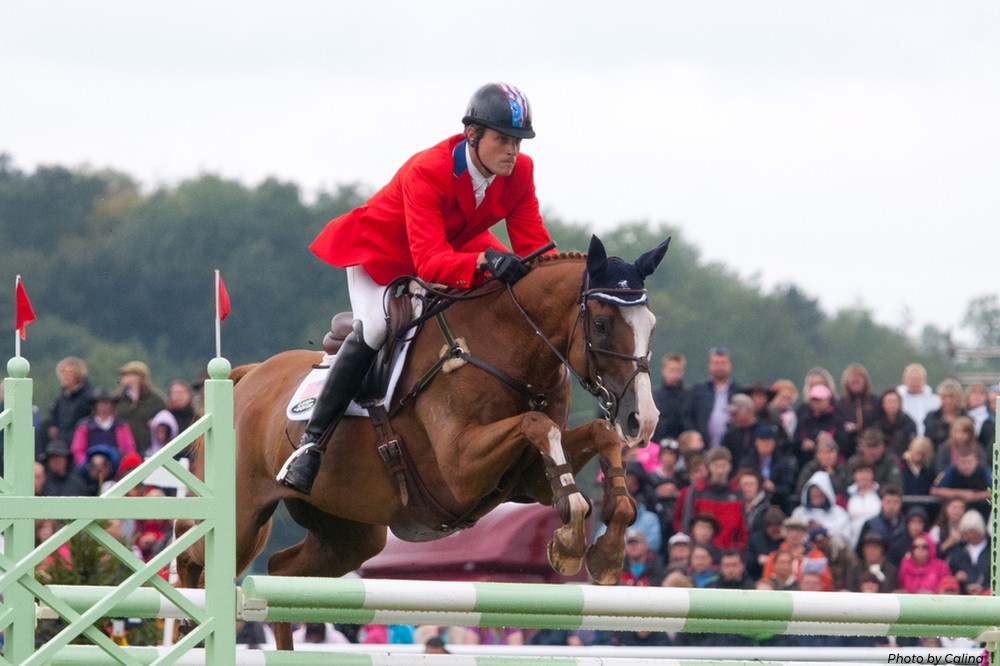
Phillip Dutton, Boyd’s mentor and fellow American teammate at the London and Rio Olympics, says that Boyd has guts, but he’s not reckless.
“A lot of it has to do with the fact that he believes in himself,” Phillip said. “We’ve been through a lot together — the fire, two Olympics, two World Equestrian Games and the Pam Am Games. Through all of it, Boyd’s always shown he’s got a lot of heart.”
Boyd has fallen off horses time and time again, breaking bones and collecting bruises, but he doesn’t let fear get in his way.
“If you’re not worried or nervous about something you’ve worked hard on, there’s something wrong with you. It’s a privilege to do something that makes you feel that way,” Boyd said. “If you’re attempting to do something that scares the hell out of you, that means you’re trying to do something with your life.”
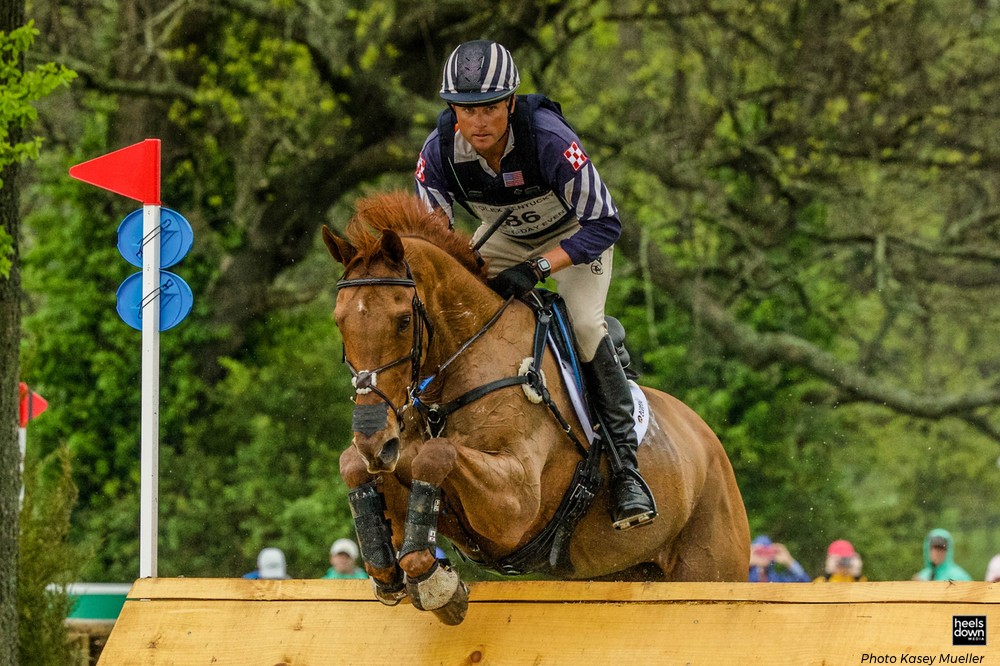
Confidence Comes from Training
Boyd is the first to admit that he’s not terrified to try anything.
“Sure, I’m nervous at the start of an event but it’s more of failing or not being able to get the job done,” he said. In all the years he’s spent riding and training horses, he said that confidence comes from one thing: training. “When I’m training at home, I’m putting the horses through exercises that are much harder than what we do in competition. So by the time we get to an event, it’s something I know I’ve done a thousand times with that horse. I find comfort in that.”
So do the homework, Boyd challenged.
“Training is essential. In our sport it’s all about having a partnership with your horse.”
The partnership is what keeps him focused and level-headed when competing. It doesn’t give him any room to feel nervous or to second guess himself. Boyd knows his horses trust him not to steer them into dangerous situations. And beyond that, he doesn’t worry about the factors that he can’t control.
“It all comes down to understanding,” Boyd said. “If you’re worried about how your horse will handle the water jump, you should have done that water jump 5,000 times before you go to an event to do it just another time.”
He also picked up some focus exercises from a sports psychologist he met before the Olympic Games in London.
When I ride, I try to be in the moment. I focus on the next turn in dressage, not wondering what score they’ll give me.
“When I feel nervous or fear in my body, I stop and take a deep breath. I take in all the air I can gather and then let it all fall out,” Boyd explained. “I do this with the imagery of letting all the fear and tension tumble out. I do it just before I ride, so it’s like subconsciously I’m getting rid of all of those feelings.”
Boyd also stresses how important it is to stay in the moment when riding. Don’t be too focused on the final outcome.
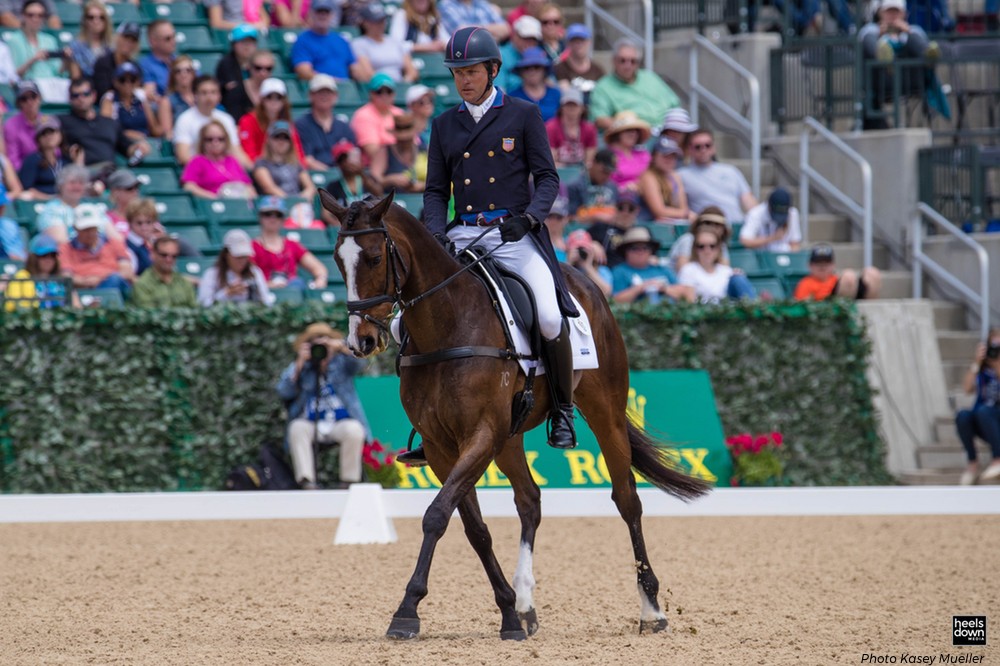
“You can drive yourself crazy focusing on a score, or the rankings or the final results,” he said. “When I ride, I try to be in the moment. I focus on the next turn in dressage, not wondering what score they’ll give me. Instead of saying I want to jump clear in stadium, I focus on how I’m going to ride my horse to jump each jump clear. The result will be a reflection of what kind of ride I produce.”
Bec Braitling grew up riding in Australia with Boyd. They rode the school bus together as teenagers and eventually represented Australia at the Young Rider level in the Trans-Tasman Three-Day Event in 2000. Bec fondly describes the young rider version of Boyd as a “lunatic.”
She remembers when Boyd and fellow eventer Ryan Wood used the high fence around the public arena as a jump and would jump in and out of the ring for fun.
“He was always kind of crazy. But in Australia when we were growing up, there were no rules. Because of that, he grew up thinking he was invincible,” Bec said. “I don’t think he was very dedicated to dressage until he met (his wife) Silva,” she added.
Don’t Let Fear Alter Your Perspective
Boyd still remembers what his friend, Troy Glaus, a Major League Baseball player formerly with the Toronto Blue Jays, told him just before the first time Boyd was set to compete at the World Equestrian Games in Kentucky.
“We were looking at the dressage arena and he said something I’ve always kept with me,” Boyd said. “The dressage arena is the same everywhere you go. It’s the same size, it’s the same test. The only difference is it’s in a different place. So focus on what you already know how to do, because you’ve done the same thing in the same arena in other places. Find comfort in that.”
Failure happens when you’re not prepared.
And if nothing else, Boyd advises riders to stop worrying. Injuries are just part of the sport. Eventually, every rider is going to have a fall. There will always be factors, like the weather and a judge’s style, that are beyond a rider’s control.
“I accept things will go wrong sometimes. I gave up worrying about it a long time ago. All that does is keep you up at night,” Boyd explained. “Failure happens when you’re not prepared. That determines how you’re going into an event. Are you going to wing it or are you prepared?”


